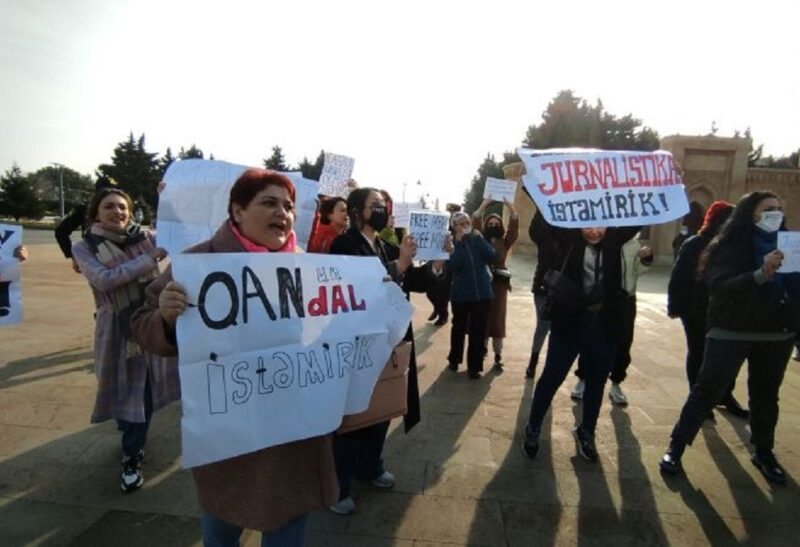A third world country
The term “Third World” appeared relatively recently, in the second half of the twentieth century. First it was a political matter: there were the countries of the capitalist camp and the countries of the socialist (communist) camp. Countries that fell outside this strict definition – generally the countries of Africa, East and South Asia and South America – were perceived as the “third world.” The formation of a “camp” from the third world did not succeed, although some attempts were made to transform these countries into an independent, international political force.
Later, when the “second world” disappeared,
the definition of the “third world” was still preserved, but politics faded into the background. By saying “third world”, people began to refer to countries with a low income per capita and low human development.
The problem was not that the idea of two “worlds” was kept, but that the sharp disparities between these “worlds” was maintained. It turned out that the “first world” was only a small number of states, the so-called countries of the “golden billion”, and over the past 50-70 years, only very few of the countries from the “third world” have managed to enter into their
Secondly, and this is the most dangerous thing,
the gap between living standards of these countries continues to grow. What it may lead to, was seen recently when huge uncontrolled flows of immigrants, essentially the lumpen mass of the world, rushed to the countries of the “golden billion”. It was an element that could not be stopped. People aspired to the “promised land”, so that if they do not succeed, then at least their children will live a normal human life.
But what prevents these or those countries to transform their ‘human capital’ (if we are not racists, we must recognize that this exists in every country) into “human development”?
And to what “world” does modern Azerbaijan belong?
Entire research institutes have given themselves to this question. And it would be naive for me to talk about the problems of a development strategy in the country in such a small article. But I will focus on one aspect in particular – education – and I will not attempt to judge just how significant it is.
What is most important in education?
I have already written about Immanuel Kant’s article titled, “What is education?” For Kant, education is a transition from adolescence into adulthood; when an individual first comes into contact with the outside world – the social one included – and begins to believe in the possibilities of Reason. And if you do not have the courage to use your own reason, it is not necessary to burden the blame on the imperfections of the world.
To the the phrase, “the courage to think”,
I would add “the courage to know the truth about yourself.” It applies to every individual, it applies to peoples as a whole.
The truth about us, even the most bitter, the ugliest one, allows us to overcome our imperfections, to develop. Lies about us, however, even the most beautiful ones, even those capable to delight others, create obstacles to our own development and do not allow us even to be aware of our own achievements.
Lack of courage to know the truth about yourself
is a sign of immaturity (adolescence), which characterizes the countries of the “third world.”
If we want to develop, we must admit that this is fully applicable to modern Azerbaijan as well.
Propaganda or the truth about yourself
I have had to repeat the thought of Confucius a number of times, allowing myself to rephrase it.
Confucius said:
“I am not afraid that others do not know me, I’m afraid that I do not know others.”
My rehashed version would be:
“I am not afraid that others do not know us, I’m afraid that we do not know ourselves.”
For some reason, we believe that all of our problems come from the fact that we are bad at promoting our culture. We should simply promote it harder and the world will be open-mouthed, and the flow of tourists to our country will increase many fold.
But should a mentally healthy person attach so much importance to what others think about him? Maybe it is better to give preference to his or her own development, which is impossible without understanding of the self.
In the end, if we are worthy of admiration, but the world does not admit that, it is a problem of the world and we should not be too concerned.
If we are not worthy of admiration, there is nothing to talk about.
There are times when the courage to think and the courage to know the truth about ourselves allows one to relax, to let go of our concerns and complexes.
To be: not to seem
According to my observations, we have an ingrained habit of seeming, but not being.
When this started, I’m not too sure. Of course, there are historical reasons: we’re not used to living in our country, to using our own reason and logic. We won’t go back centuries, but this habit was forced on us by the political realities of the Russian Empire, and later the Soviets. Perhaps this habit was more common in the latter period, because being two – faced and hypocritical was the only way to get by.
We were taught to pretend, and we learnt to pretend. From childhood. They taught students that they could speak at home, but not in school. University students learned that the most important quality is subordination – everything else is just detail. And ambitious young men were taught that if you want a nice spot in the sun, first you have to find the right patron, and never stick out.
As a result,
we tend to think that everything is decided somewhere where we are not allowed to be. We somehow do not exist in the world.
And when big money and big ambitions come to the country, our ideologues (aren’t they the ones who have gotten used to not sticking out?) began to explain to us, that it is
they
that are guilty for our current condition, that is, the “first world.” And not us.
What is the result?
The greater our ambitions, the less truth there is about ourselves. The less there is truth about ourselves, the smaller are our opportunities to develop and move forward. It’s a vicious circle.
Maybe, we should finally call ourselves a “third world” country, and begin to learn how to turn our considerable “human capital” into “human development”.
The article reflects the views of the author which may not coincide with that of Meydan TV.



